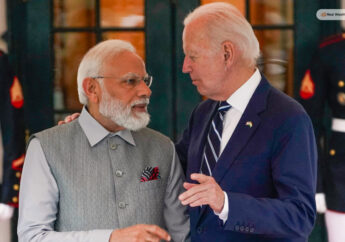Airbnb Business Model | How Does Airbnb Make Money?
by Abdul Aziz Mondal Business Published on: 18 February 2020 Last Updated on: 07 November 2024

It has been only a month since my latest stay in an Airbnb business. It was a trip to Goa, India. If it weren’t for Airbnb, I would have been worried about my stay and might have ended up with some expensive hotel, which I might have not even been sure about at that moment. I am very fussy about the places I choose to stay on my vacations. Thanks to Airbnb, I was able to get a precise place with what I expected from this brand. Well, I am here to review my stay and talk about how the Airbnb business model made this trip, and all other previous trips to different locations, memorable.
Ease you can’t compare
I was able to book my stay right from the US and could check-in in at a well-organized villa that was waiting for me the day I arrived. Unlike a hotel room, the entire villa was for me with its attached swimming pool, 24×7 housekeeping, and a private chef. Well, it was a comparatively expensive stay, as I chose one with my desired amenities.
The point is, not all Airbnb properties are luxurious and expensive. I have also stayed in economical stays with no luxurious amenities but decent to crash for a night or even months. The beauty of the Airbnb business is its accessibility to all kinds of places and budgets. They have something for everyone; that’s Airbnb’s business model I am talking about right now.
If you are an entrepreneurial mind, Airbnb’s business model attracts your attention too, and you are wondering how to make an app like Airbnb to start a similar business, this article you help you do so on a beginner’s level. Let’s get to know Airbnb from the roots.
What is Airbnb?
Airbnb is a platform where you find comfortable homelike stays on your trips across the planet. You can connect with the house owners, rent a space to crash, and get all kinds of homelike amenities, depending on the type of property.
Let’s put it in a business perspective.
Airbnb is a peer-to-peer vacation rental marketplace. It lets travelers connect with local hosts and set up a stay as per the availability of the properties and needs of the traveler. They started Airbnb as a mere platform to find a privately owned space where travelers can crash on their trips and get home-cooked breakfast. In return, the hosts made money from their homes.
Today, with its unique business model, Airbnb is the biggest name in the hospitality industry. It has evolved to acquire a global presence in over 4,000 cities and 190 countries offering all kinds of options to travelers. From Luxury bungalows to hotels, motels, camping spaces, bedrooms, couches, and treehouses, the Airbnb business has everything for your trips. The company was valued at $31 billion in 2017.
Travelers have been booking cheap hotels and motels on their trips even before Airbnb. So, what made this brand so different to get this massive traction? It’s the business model.
Airbnb Business Model –The key to success
Airbnb follows the same aggregator business model that most hotel booking sites follow. However, it added the concept of the peer-to-peer sharing economy, rather than aggregating hotels and motels on its platform. This allowed private homeowners to rent out their personal houses, villas, apartments, guest rooms, couches, and even lawns for camping.
Since people started making money from their existing properties and spaces. The platform got heavy word-of-mouth popularity, as people discussed how they are making money. This encouraged more and more people to sign-up as hosts on the platform.
For travelers, it allowed them to find comfortable home-like stays and home-cooked food for affordable prices. Unlike expensive hotels, the concept of saving money and living like a local among the locals made these stays even more interesting.
However, money was not the only reason for hosts to sign up. Even for millions/per night, a homeowner would never rent his or her place to a stranger. The platform overcame this pitfall of the business model by introducing a robust peer-peer review system. It allowed not only the guests to review and rate a place but also the hosts could review their guests. Looking at the reviews and ratings, hosts have full control and they can choose whom to rent out their homes. The system not only encouraged the hosts to provide their bests but also the guests to stay on their best behavior.
Apart from the hosts and guests, Airbnb in-houses yet another stakeholder on the platform –photographers. The platform manages a network of global freelance photographers. It can visit the properties and take high-quality photographs to put on the site. Airbnb manages the payments to these photographers and hosts get great product images to put in their listings free of cost.
The bottom line
Airbnb’s business made sure to take care of all its stakeholders equally. They operate in a pure peer-to-peer marketplace model with full independence and reasons to stay on board for everyone involved. It developed both ends of the marketplace strategically and somewhat simultaneously, too.
What is Airbnb’s revenue model?
Airbnb follows a typical marketplace revenue model led by commissions and transaction fees. It allows the host to list their properties free of cost after profile and property verification. The platform manages the bookings and transactions for the hosts and the guests. The final earnings of the platform come through the following channels:
Commission from the hosts: Airbnb charges a 10% flat commission on every booking hosts get from the platform.
Processing fee from the hosts: The platform also charges an additional 3% processing fee from the hosts to manage the online transaction.
Transaction fee from the guests: A 6-12%, non-refundable transaction fee from the guests for every confirmed booking
To conclude
Airbnb is a giant in the hospitality business today. However, its basic, p2p rental marketplace model, is not limited here itself. One can adopt the same model using an Airbnb clone script to build a similar app for renting a lot more than just vacation houses. You can start an Airbnb business for cars, lawns, books, machinery, and bikes. It also has niched properties like guesthouses, party houses, co-working spaces, and a lot more. The sharing economy is on a boom these days, and so is the renting industry. This could be a great idea to use this business model and start a renting business without even owning a single asset.
Read also:



































































































